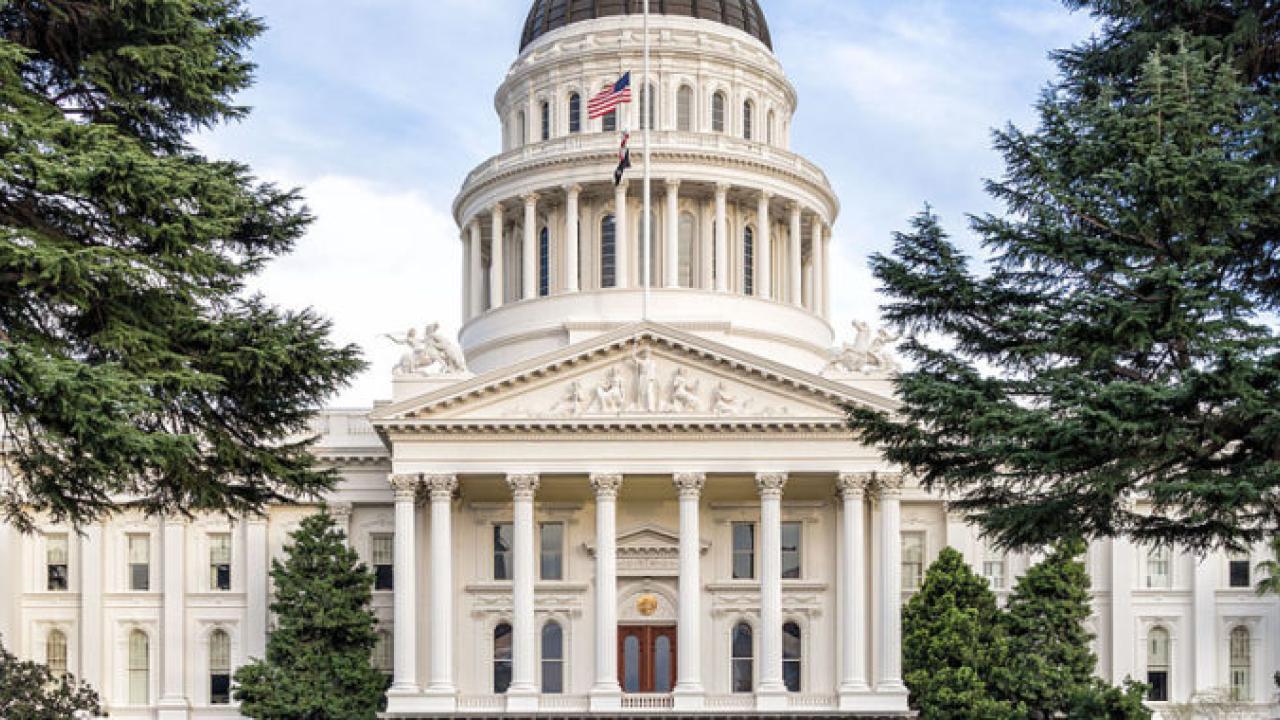
Key environmental bills await Newsom's approval
What’s Happening
California’s Governor Newsom is deliberating hundreds of bills, including several key policies to advance sustainable land use, bike safety, vehicle electrification, and accessibility. The end of the California legislative session is often associated with a flurry of bills rushing through during the final days. This is the first year of the two-year legislative session, so many of the bills that did not advance through committee in time will have another chance. Around 900 lucky bills passed through both houses this year and made it to Governor Newsom’s desk. Newsom has been busy over the last few weeks and has already signed several of the bills that the Policy Institute has been tracking. These include bills that will impact our state’s climate, transportation, and land use and we will share the highlights from the session that relate to recent UC research findings.
Here’s our take
Governor Newsom has already signed a number of key bills that will invest in climate mitigation, including $3.9 billion for electric vehicle investment and infrastructure. However, one Climate bill never even made it to his desk. After failing in the State Senate AB 1395, titled the “California Crisis Act”, would have set a goal of net-zero emissions by 2045. This bill came after the California EPA asked a collaborative research team from UC Davis, UC Berkeley, and UC Irvine to investigate how this goal would be attainable within the transportation sector, and identify the supportive policies necessary to achieve this goal. The research team identified a suite of necessary policies, and even in the absence of an ambitious 2045 target, California can still make progress towards net zero transportation emissions.
Several other important policies that passed the legislature aim to do just that, including two notable climate bills that Newsom signed, SB 596, which aims to zero out emissions in the cement and concrete sector by 2045; and SB 500 which will require electrification of all automated vehicles (AVs) by 2030, with the exception of heavy freight vehicles. The latter bill reflects research findings, including a recent UC Davis AV policy paper that highlights the fact that electrifying AVs, which are likely to be high-mileage vehicles, align with California’s transportation and climate objectives.
The legislature also gave the OK to several bills addressing land use and sustainability. Governor Newsom has yet to weigh in on AB 1147, which would reform the Regional Transportation Plan process and provide regions with guidance on how to build “15-minute cities” which aim to make mixed-use neighborhoods that are more friendly to people who bike and walk. Governor Newsom did sign SB 10, which will give local governments the authority to zone up to 10 homes per parcel in transit-rich or urban infill sites. Recent UC Davis research addresses the tensions surrounding transit-oriented development in California.
The Governor also just signed a bill to reform how drivers pay for roadway maintenance: SB 339 calls for a second round of a Road Charge pilot by 2023, continuing to refine an alternative to the gas tax to collect transportation revenue. According to this recent UC Davis policy brief (that expands on previous research) road charges are more flexible than gas taxes, and likely more fair, while retaining the user pay principle of the gas tax.
Several bike and pedestrian bills also advanced and now await a decision by the Governor, including AB 122, which will allow cyclists to treat stop signs as yields. This will reduce unnecessary traffic stops for cyclists, which is important in decriminalizing standard bike behavior and reducing barriers for biking. Similarly, AB 1238 will reform the way the state punishes people for jaywalking, ending a car-dominant era that historically criminalizes walking and reinforces racial inequities–jaywalking enforcement disproportionately targets Black people and people of color. Lastly, it’s worth mentioning that an e-bike purchase incentive will soon be available for Californians, despite the fact that AB 117 failed to move out of committee. The bill would have required CARB to provide financial incentives for e-bike purchases, based on UC Davis research on e-bike incentives. But the budget bill beat this bill to the e-bike store and included $10 million to add incentives for e-bikes to CARB’s existing ZEV incentive roster.
